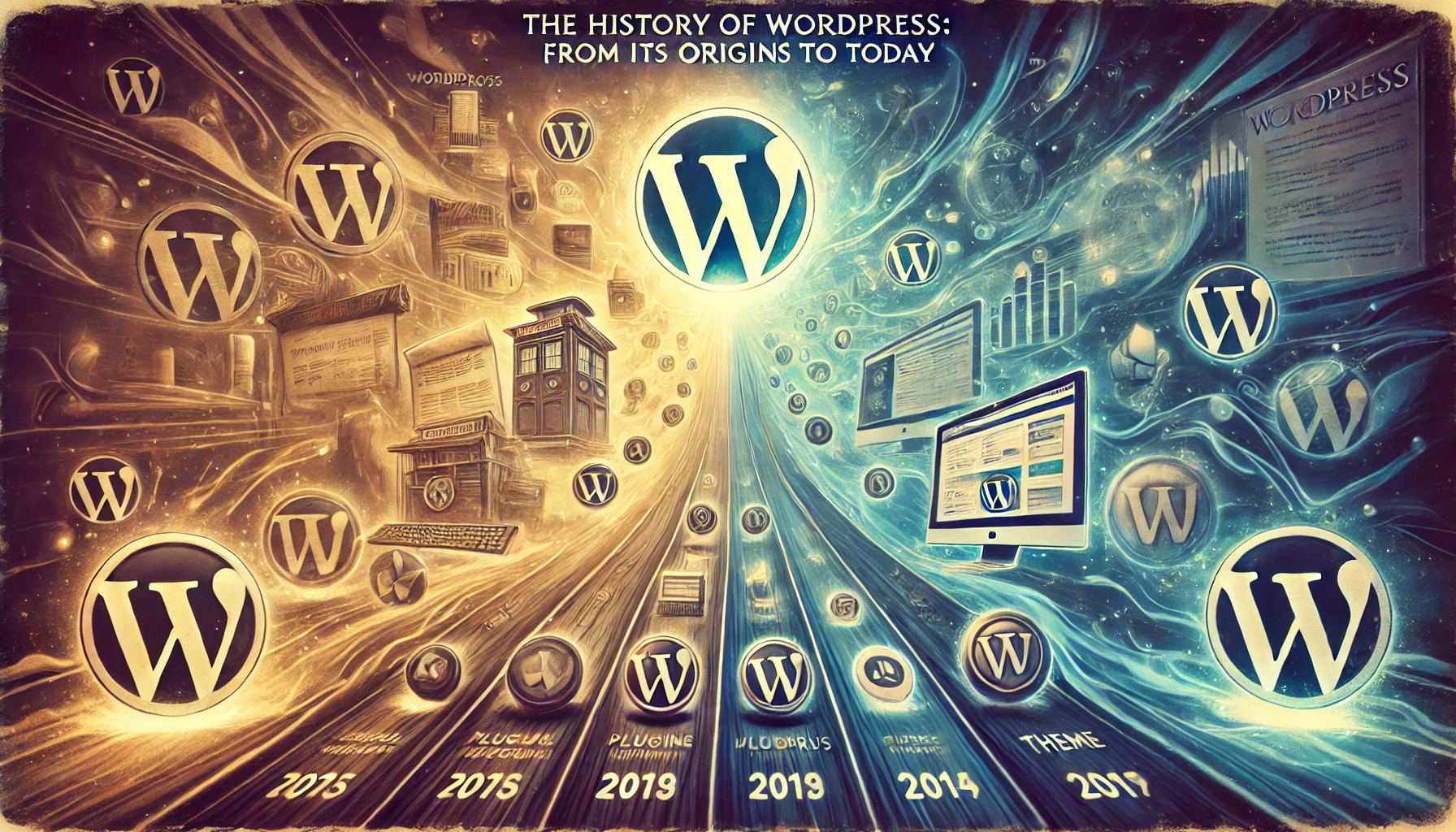
The History of WordPress: From Its Origins to Today
🚀 Introduction
WordPress is not just the most widely used CMS in the world, but also an open-source project that has revolutionized the web. If you have ever created a website, a blog, or an e-commerce platform, chances are you have already worked with this platform. But do you really know how WordPress was born and who is behind its success?
🔍 Who Created WordPress?
WordPress was born on May 27, 2003, thanks to Matt Mullenweg and Mike Little, two developers who decided to improve b2/cafelog, a blogging system that had been abandoned. With the goal of making website creation more accessible to everyone, they created a flexible, intuitive, and completely free CMS. You can learn more about the history and evolution of WordPress directly on the official WordPress website.
📜 The Early Years of WordPress
From its early days, WordPress has captured a growing community. Here are some key moments in its evolution:
- 2004 🛠️ Introduction of plugins, enabling the extension of CMS functionality.
- 2005 🎨 Launch of WordPress 1.5 with a customizable theme system and the creation of WordPress.com.
- 2008-2010 📈 Improvements in the user interface and new features to manage content more intuitively.
- 2013 🌍 WordPress surpasses 20% of all websites online.
- 2018 ✨ Introduction of the Gutenberg block editor, revolutionizing content creation.
🎯 Why Has WordPress Been So Successful?
There are many reasons why WordPress has become the most popular CMS:
- 🔓 Open-source: Free and customizable without limits.
- 🛠️ Flexibility: Perfect for blogs, business websites, e-commerce, and much more.
- 📈 SEO-friendly: Structured to support search engine optimization.
- 👥 Huge community: Millions of developers and users contribute to improving it every day.
- 🛡️ Security: Frequent updates to protect websites.
To learn more about choosing the best hosting for your WordPress site and optimizing its performance, visit WP-Curve, where you can find solutions optimized for speed, security, and scalability.
🚀 The Future of WordPress
Today, WordPress powers over 40% of the world’s websites and continues to innovate. Some future trends include:
- 🤖 Integration with Artificial Intelligence for automation and smart content creation.
- ⚡ Faster performance, with new server-side optimizations.
- 🌐 Expansion of headless CMS, for more advanced content management.
If you are a developer, blogger, or business looking for a strong digital presence, WordPress is (and will remain) the best choice! 🚀 Learn more about features and future updates directly in the official WordPress documentation.
![Vultr_logo_high_res[1] Vultr_logo_high_res[1]](https://b3400949.smushcdn.com/3400949/wp-content/uploads/2024/06/Vultr_logo_high_res1.png?lossy=1&strip=1&webp=1)

![ionos-logo-freelogovectors.net_-640×400[1] ionos-logo-freelogovectors.net_-640x400[1]](https://b3400949.smushcdn.com/3400949/wp-content/uploads/2024/06/ionos-logo-freelogovectors.net_-640x4001-1.png?lossy=1&strip=1&webp=1)
